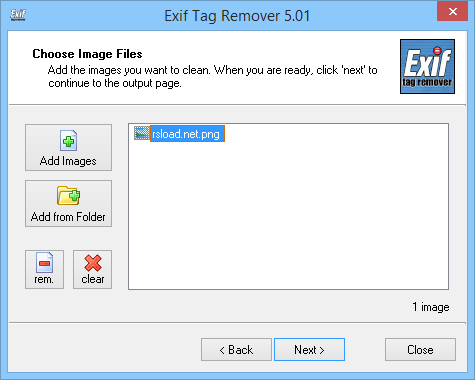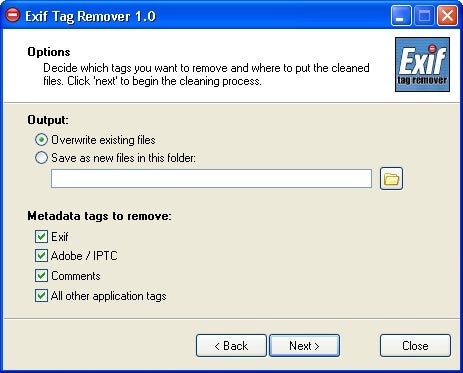
Removing the metadata is useful if you want to make sure an image you're sending doesn't contain data you didn't intend to send. Our second website, Ver Exif at, spits out all of the Exif data after a scan, but it also comes with an option to strip metadata out of images. So you can scan RAW images files like CR2 and DNG, PNG, and TIFF, to name a few. If you don't mind that, you can see the simple design is easy to use and supports a vast variety of formats, unlike the command line tool which only works with JPG files. The site does not use HTTPS, unfortunately. First, let's start with Jeffrey Friedl's Image Metadata Viewer over at.

If you're using a browser, there are two great free websites to extract Exif data. If you get a "corrupt data" error, there may be no metadata in the file or you're scanning a file that's not a JPG. Below, a photo that's been processed in Photoshop retains information about the software that modified it, the computer it was modified on, and the camera it was taken on. While all of the options is a lot to process, the most straightforward application of this tool is to type exif and then the path to the file you want to inspect. Similarly, you can install this tool by typing brew install exif on a MacOS device.

If you receive an error, or if you're using another OS like Debian or Ubuntu, open a new terminal window and type apt install exif to install the program and any needed dependencies. To see the options available to us, we can run the exif -help command to list the included options. This program is the command line front-end to "libexif," and it only works on JPG file types.


To start, we'll be using the "exif" tool that comes pre-installed in Kali Linux.


 0 kommentar(er)
0 kommentar(er)
